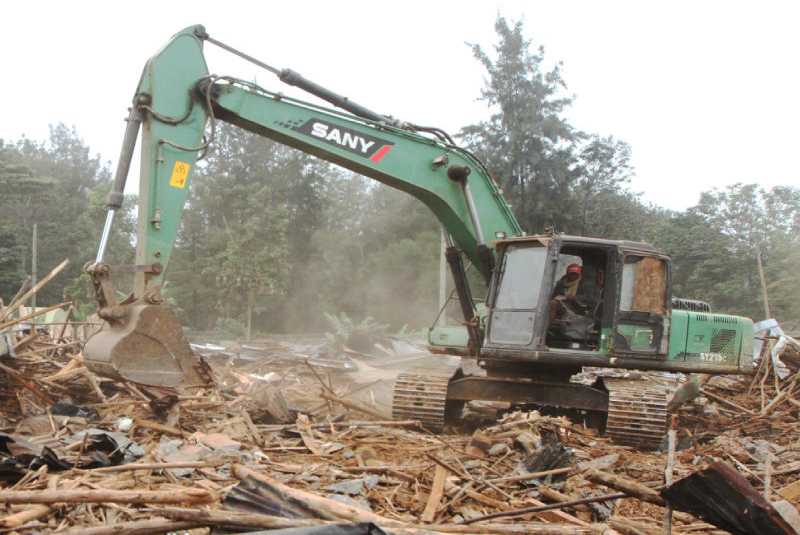×
The Standard e-Paper
Home To Bold Columnists

The bulldozer christened 'Sany The Terminator' that is used to demolish illegally erected buildings in Nairobi. [Elvis Ogina.Standard]
It took years of savings, investment and sheer hard work to turn Nairobi’s Kileleshwa Shell Petrol Station into the “go to” place for refueling. Yet it took a few strikes of a bulldozer’s hammer to reduce it to rubble.